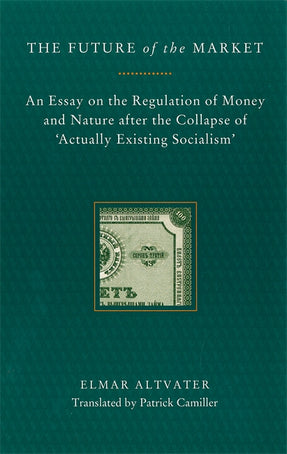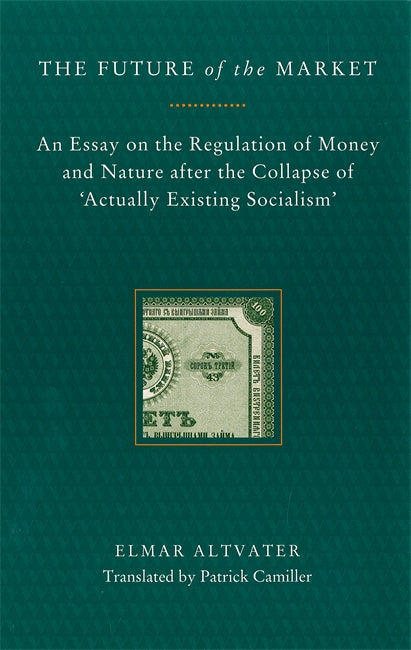
The Future of the Market:An Essay on the Regulation of Money and Nature After the Collapse of ‘Actually Existing Socialism’
-
Sale price $19.00
Add to cart
Considers the discordant state of the capitalist world in the 1990s, drawing on both green and socialist economies. Altvater's central concern is to examine the claims made for the market, both in the history of capitalism and in the globalized market economy.
In this book Elmar Altvater, one of Germany’s leading radical economists, considers the discordant state of the capitalist world today, drawing on both green and socialist economics.
The end of ‘actually existing socialism’ has been widely hailed as confirmation of the supremacy of market forces. Yet both the post-Communist societies of the East and large parts of the South face a protracted crisis to which the apparently victorious West offers no solution. Against this background Altvater explains why Soviet planning ended in failure, having reproduced many negative features of the Western model without being able to sustain a global challenge to it.
Altvater examines the claims currently made for the market, both in the history of capitalism and in the globalized market economy today. Has a free market ever existed, in the sense of imposing itself on the will of political actors? Can the free market ever lead the debt-ridden societies of Africa or Latin America out of mass poverty? Can the world crisis of civilisation, in all its dimensions, be overcome by relying on market models of production and consumption? These questions are addressed in the context of an economic theory that puts human needs and capacities, and a sustainable model of development, at the centre of analysis.
Reviews
This is a rich, well-argued, challenging book; it is both a defence of Marxist political economy and socialism at a time when they are under attack and an imaginative extension of them to take account of the increased importance of the ecological question.
